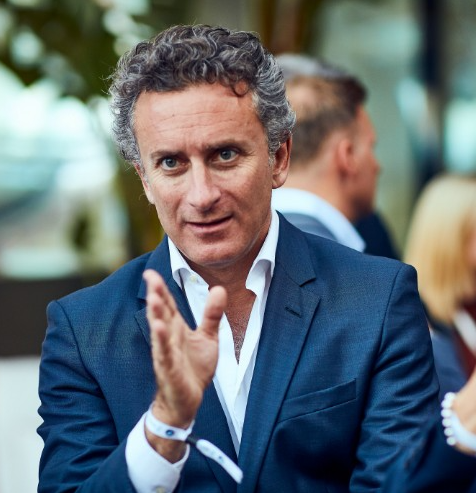Should oil nations bankroll hydrogen car racing? The sport’s boss says ‘it is the only way’

Sport can often provide answers to non-sporting questions.
Mercedes developed parts of a ventilator that was key in looking after those with Covid-19 during the pandemic; smart mouthguards in rugby are helping to lead research into traumatic head injuries and their effects on the likes of car crash victims; and the science used to develop prosthetic limbs for Paralympic athletes is now enabling military veterans to live more comfortably after undergoing amputations.
So it should come as no surprise that motorsport aims to be at the forefront of hydrogen and electric power.
Alejandro Agag, former Spanish politician turned eco activist and sporting entrepreneur, has long been associated with a world beyond oil and gas.
Agag has pioneered racing championships such as the electric Formula E, next year heading into its 11th season with new races in Tokyo and Shanghai, and Extreme E, where fans watch the action from the comfort of their own home to minimise the carbon impact of the sport.
But now he is working on Extreme H – a new racing series with hydrogen-powered cars.
The natural gas has long had a frigid relationship with the mass car manufacturing industry, with many sceptical of the plausibility of scale and success, much like early concerns with electric.
But Agag is confident the racing series, and hydrogen-powered cars more broadly, have a strong future.
“Electric vehicles, electric cars, and batteries have huge advantages in certain conditions but in some others hydrogen may be a better solution,” Agag told City A.M.

He added: “You need a huge grid if electric vehicles are developed fast, the infrastructure may not be enough [to cope] and hydrogen may be a great complement [instead].
“Creating a platform for hydrogen gives a great opportunity for many, many different actors in that ecosystem to develop the technologies.”
Extreme H’s inaugural season is set for 2025 with the off-road SUV’s completing a season across multiple countries should the governing body of the sport sign off on the championship’s right to be recognised by authorities.
The likes of Lewis Hamilton and Jenson Button, former British F1 drivers, have teams in Extreme E and are set to be offered priority in developing Extreme H outfits.
However, Formula E and Extreme H have faced questions over some of their biggest backers, such as Saudi Arabia’s Public Investment Fund, which has made its fortune from oil.
When asked whether having this backing was the optimum path for sport, and wider society, to take, Agag said: “It is the only way.”
He explained: “The oil age will finish when we have technologies that are simply better and cheaper than oil to produce.
“But to develop those technologies you need oil. You’re going to need a lot of oil to get out of the oil age.
“Solar panels demand a huge amount of energy on their construction and on their production. A solar panel is paying its CO2 carbon footprint for the first five years of its existence, then it starts having a net positive effect.
“Where are you going to get the energy and energy from? People who say stop oil today, fine, then with what are we going to build all the solar panels, all the wind power windmills?
“We need energy to build a world in which we can bring energy in a sustainable way and I think having the backing for more sustainable technologies from countries that are oil producers is the perfect metaphor of how the future is going.”
We need energy to build a world in which we can bring energy in a sustainable way and I think having the backing for more sustainable technologies from countries that are oil producers is the perfect metaphor of how the future is going.
Alejandro Agag
Agag said he was excited to be part of the process of developing another new sustainable racing series.
“It feels very good because it is really participating in the technology revolution, being at the front of the technology change that is going to help build a world that is working in a more sustainable way,” he said.
Agag added: “Sport is a fantastic vehicle to drive changes and to showcase changes.
“With sports you have both effects, you can have a platform to develop and test the technology, but then you can demonstrate what you’re doing.
“Because we need the future to be based on reality, not on fantasy.”